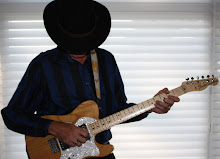Well, it's the start of the New Years Day weekend, and all the radio stations will be into their "Top 500 Songs Of All Time" countdowns. Or 300, or 250, or whatever number fits their format and scope.
If you're old enough, you may remember a time when this was a new idea, an exciting idea.
I remember when the local FM Rock station first did this, about 35 years ago, I got totally caught up in the whole thing. I wrote my letter (no internet, kids), I glued myself to the radio all weekend, I bought a newspaper to get the entire list (for my archives?), I debated the relative placement of various songs with the radio (it didn't respond) and friends (a few might have responded). It was new, exciting, fun - and somehow important.
Then of course it became a standard feature of long weekends and New Years Days. And after about the 15th time I saw Stairway To Heaven at #1, followed by Hey Jude and Satisfaction, well the idea had lost its lustre. The list is the list, and not much is going to change year to year. So unless you can get excited about whether Smoke On The Water placed 23rd or 24th, it's just the same old list.
Nowadays, when all radio stations follow a top 40 format, and probably dont' have more than 500 or 600 songs in their playlist, there doesn't even seem to be a point to such a countdown. You know, when the listener request app on the station's website gives you a drop down menu to choose from their predetermined list, well ...
I suppose the whole thing is a break from the top 40 songs you're going to hear this week, so you get a bit more variety during the countdown. I mean, being exposed to the master playlist instead of just this week's playlist is pretty good, right? Even if the master playlist doesn't change from year to year, you're still getting some variety and a bit of fun, right? Right?
What the hell. Better go and put the radio on. Hmmm. I wonder where Bohemian Rhapsody will finish this year?
If you're old enough, you may remember a time when this was a new idea, an exciting idea.
I remember when the local FM Rock station first did this, about 35 years ago, I got totally caught up in the whole thing. I wrote my letter (no internet, kids), I glued myself to the radio all weekend, I bought a newspaper to get the entire list (for my archives?), I debated the relative placement of various songs with the radio (it didn't respond) and friends (a few might have responded). It was new, exciting, fun - and somehow important.
Then of course it became a standard feature of long weekends and New Years Days. And after about the 15th time I saw Stairway To Heaven at #1, followed by Hey Jude and Satisfaction, well the idea had lost its lustre. The list is the list, and not much is going to change year to year. So unless you can get excited about whether Smoke On The Water placed 23rd or 24th, it's just the same old list.
Nowadays, when all radio stations follow a top 40 format, and probably dont' have more than 500 or 600 songs in their playlist, there doesn't even seem to be a point to such a countdown. You know, when the listener request app on the station's website gives you a drop down menu to choose from their predetermined list, well ...
I suppose the whole thing is a break from the top 40 songs you're going to hear this week, so you get a bit more variety during the countdown. I mean, being exposed to the master playlist instead of just this week's playlist is pretty good, right? Even if the master playlist doesn't change from year to year, you're still getting some variety and a bit of fun, right? Right?
What the hell. Better go and put the radio on. Hmmm. I wonder where Bohemian Rhapsody will finish this year?
